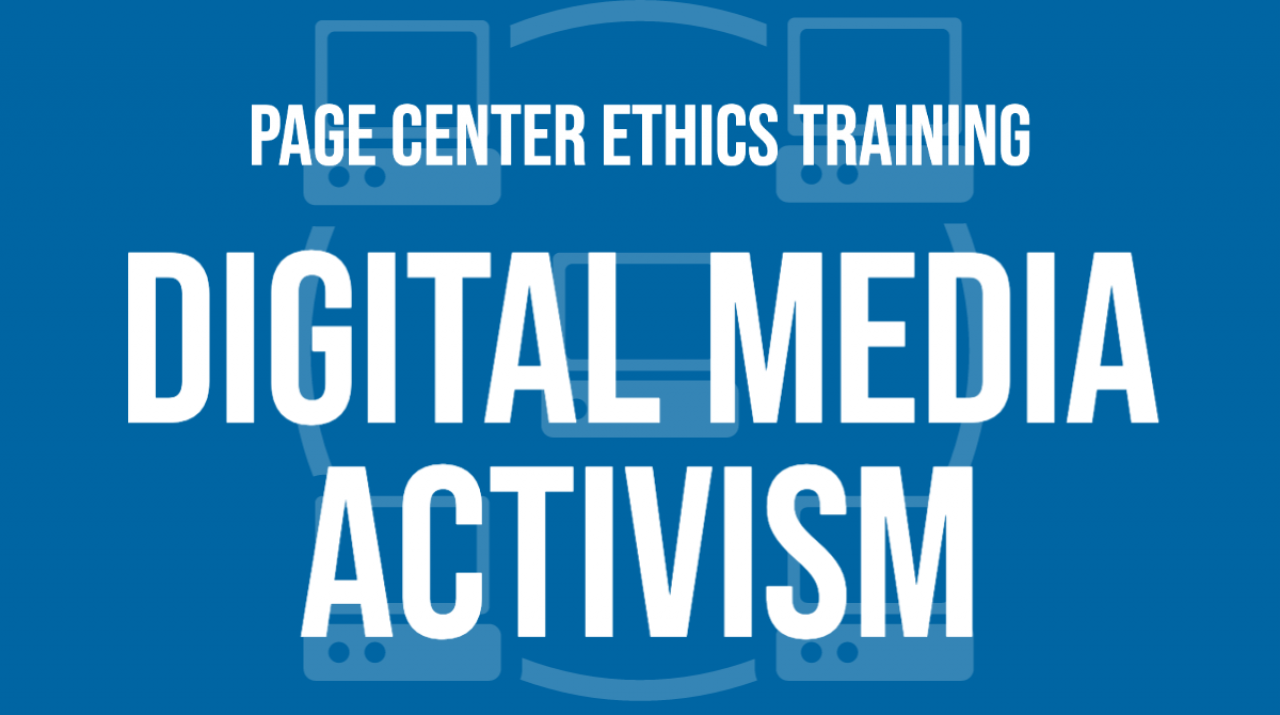December 15, 2022
New Page Center training module focuses on impact of digital media activism

By Cerrena Lewis, Page Center Intern
The Page Center recently launched an addition to its online Public Relations Ethics Training. The new module is called Digital Media Activism.
Module developer Alison Novak, associate professor at Rowan University, said the module will teach students about activism and its impact on digital media policies. These policies determine how companies conduct themselves online, and how audiences perceive them.
“Almost all organizations benefit from activism and are impacted by digital media policies," she said. "Strong practitioners need to know the best practices to shape these policies."
The module covers many areas within the topic, including how to build credibility, create a plan and evaluate metrics. The module also includes examples of failed activism and different ways to approach activism policy-making.
Novak’s inspiration behind the module stems from her own research on how organizations attempt to engage the audience through their digital policies, for example when the crowd-sourced review app Yelp got involved in the Net Neutrality debate in 2017. Novak is fascinated by organizations getting involved in policy debates, especially when they encourage the public to get involved as well.
"So many organizations fail at choosing the right activism foci, engaging the audience correctly, or achieving their goals,” she said. “I'm very hopeful that the next generation of practitioners can give good counsel to management and prevent these problems in the future."
Students can expect to learn the best practices needed when organizations participate in digital media activism, such as how to select an activism focus, how to engage the audience, how to build credibility, and how to measure success. Students will learn the basics of how organizations impact digital media policies, and how to avoid some of the potential problems that can prevent success.
The module includes two case studies on recent situations involving activism: Lyft (lesson 1) and Barbie (lesson 2).
In the case studies, students will see the concepts they read about in the lessons in action. In case study #1, they will evaluate how Lyft, the rideshare company, integrated key messages about immigration into its tactics, like videos and articles profiling drivers. Students can also evaluate how the campaign motivated behavior through requests for donations, volunteering, and co-branding with other organizations.
The second case study, talks about how Barbie rebranded itself through digital media to update its values and reputation. Since 2016, Barbie has used digital media to address critical topics such as the gender pay gap, racial justice, and mental health wellness. The case study reinforces the importance of consistent messaging across platforms and the role of media metrics in evaluating success.
To learn more about the Digital Media Activism course, visit: pagecentertraining.psu.edu.
The Page Center’s ethics training modules include 13 public relations-based modules covering ethics in public relations, ethical decision making and many more important topics. The modules provide professors and students with a free way to incorporate hands-on public relations learning into the classroom. Thousands of students have already completed the module with positive results and feedback from students and instructors. Click here to learn more about how the modules work and the many topics they cover.
